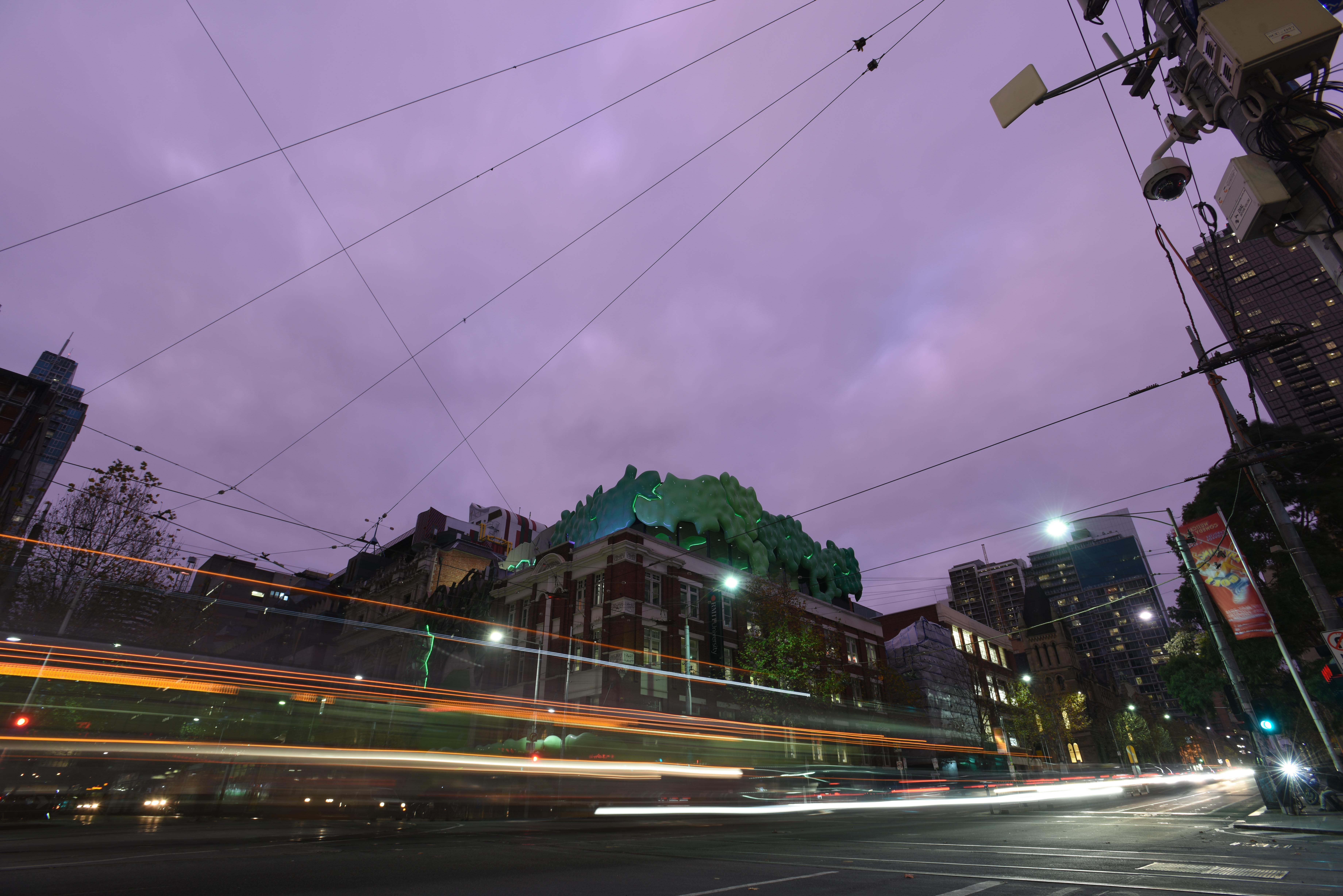by Alicia Barker | @AliciaLBarker
Brit Griffiths won’t be put in a box. The third year Youth Work student is happily non-binary identifying, meaning they don’t identify as either male or female. Fellow students and friends have been accepting of Brit’s identity, but RMIT has been less than welcoming.
One of the biggest issues for Brit is there’s nowhere to “go” on campus. For non-binary identifying students, having to choose between male and female toilets proves an everyday struggle.
“To feel unsafe about just simply going to the bathroom is a horrible feeling,” Brit said.
“When I go to uni I have to make sure that I don’t drink a coffee before class in case I need to pee, and I can’t plan anything afterward because I might need to pee and then I will be in pain because I have held it through an entire lecture and then a two hour tute.”
RMIT’s Vice Chancellor Martin Bean and the RMIT University Student Union (RUSU) have been in talks to install gender-neutral bathrooms at the city campus, and the student union is hopeful the campus would have two such bathrooms in the future.
RMIT Bundoora student Jordan* is not ‘out’ as non-binary to classmates and teachers. In class, Jordan claimed transgender people are the butt of jokes made by lecturers.
“I’ve had three different lecturers make explicit, transphobic jokes and then all of my lecturers have probably made some kind of more ignorant remarks without meaning to,” Jordan said.
“I felt like I couldn’t really say anything and if I did say anything, I’d have to out myself, which would have made me feel really unsafe.”
Gender neutral bathrooms are something Jordan would like to see across all of RMIT’s campuses.
“Currently I use the unisex disabled toilets but I definitely get looks from people, like, ‘Why are you using the disabled toilet?’,” Jordan said.
“Not only are you outing yourself as someone who doesn’t want to use the gendered toilets, but you worry that you’re a) taking the space of someone who needs it because it’s accessible and b) that people are going to think you’re really selfish for using the accessible toilets.”
RMIT Equity and Diversity manager Lara Rafferty is working with a group of students and staff together to achieve equality for students, regardless of their sexual orientation or gender identity. Improving LGBTI policy at RMIT is the first step for the LGBTI working party, according to Rafferty.
“Obviously there’s a legislative base for doing that, but it’s more about the spirit of inclusion that we want to support here,” she said.
“We have to make sure that our policies and procedures and our communications and systems and processes and everything sort of lines up with that.”
Rafferty said RMIT wants to include LGBTI students, despite the university failing to meet eight of the 15 categories in the Australian LGBTI Uni Guide, recently launched by the Human Rights Commission. More and more students are joining the working party, which would conduct a policy review and host events to gain feedback from students and staff.
“We need to continually restate the messages that RMIT should be a place for everyone, that everyone is welcome here, that we fundamentally don’t care about your sexuality or your gender identity but if you’re having issues in relation to that, you should feel that the university is a safe place that you can take those up,” Rafferty said.
The wait is still on for gender-neutral bathrooms at RMIT and students like Britt and Jordan are sick of being overlooked.
“Policy needs to acknowledge that ‘male’ and ‘female’ are not the only genders. Everyone needs to acknowledge that,” Britt said.
“As far as facilities go, just let me pee.”
*Name changed at requests because Jordan is not ‘out’ yet.


